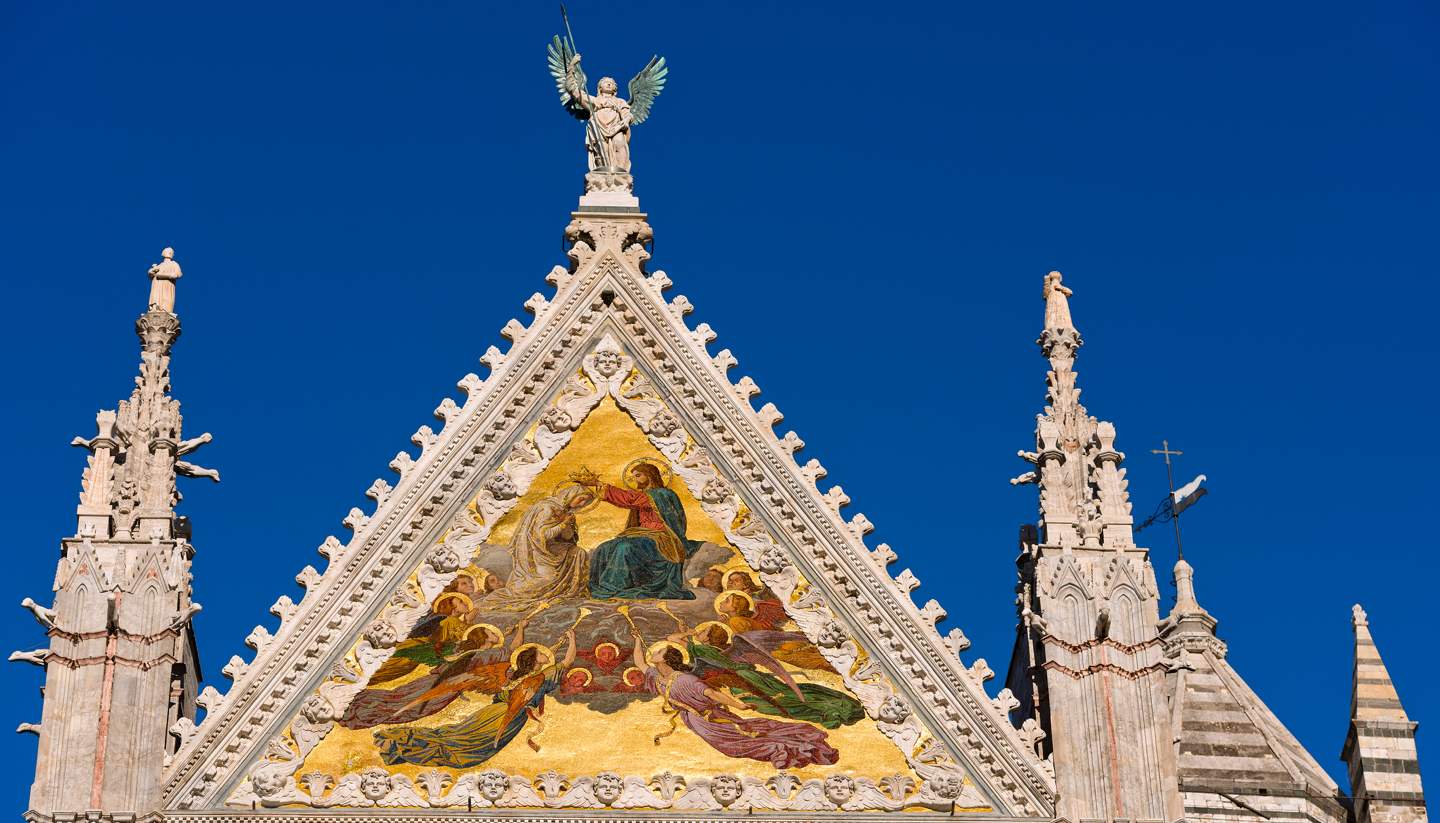Siena Travel Guide
About Siena
Gloriously Gothic and effortlessly civilised, intimate Siena is Tuscany’s most seductive calling card. This compact, Italian city is endlessly intriguing, from the shell-shaped Campo to the galleries full of doe-eyed Madonnas and sad-eyed saints.
Born middle-aged, Siena is an antidote to fashion lists. It has smugly looked the same for 900 years and has no truck with trends. In essence, it's Italy’s last surviving city-state: a provincial capital with the psychology of a village and the grandeur of a nation.
Siena is the counterpoint to nearby Florence. It’s as medieval as its rival is Renaissance. It’s the feminine foil to Florentine masculinity: Siena paints Madonnas; Florence prefers the machismo of Michelangelo’s David.
Change is anathema to the Sienese, but what is there to alter? The rose-brick cityscape is too coherent to tweak. The locals have been giving lessons in living since the enlightened city council first set the tone in the 13th century. Its hearty food and wine still converts hardened sinners and the biannual Palio horse race continues to command the passion of the population.
Today, romantics drift along medieval alleys suffused with melancholy charm. Tall, flush-brick palaces conceal world-class art collections. Culture vultures slaver over the turreted town hall and the theatrical mansions. Mystical churches and monumental fountains are simply part of the furniture; quaffing Chianti and Brunello di Montalcino wines in the Medici Fortress an everyday joy. Tomorrow they might tour the vineyards by Vespa or take a Tuscan cookery course in a countryside kitchen. Carved into Etruscan cellars, the city’s homely inns are full of foodies salivating over truffles and wild boar pasta.
Siena is a chiaroscuro city, from its striped marble Cathedral to its black-and-white city emblem. Tunnelled backstreets open into the brilliant, light-bathed Campo, where all roads eventually lead. Locals liken it to the enveloping cloak of the Madonna, the city’s patron saint, yet Italians know it as a city ‘a misura d'uomo’ (a city ‘made to the measure of man’).
When your horizons shrink to a single neighbourhood bar, you will have discovered the Sienese spirit. It’s time slow down and start walking.


